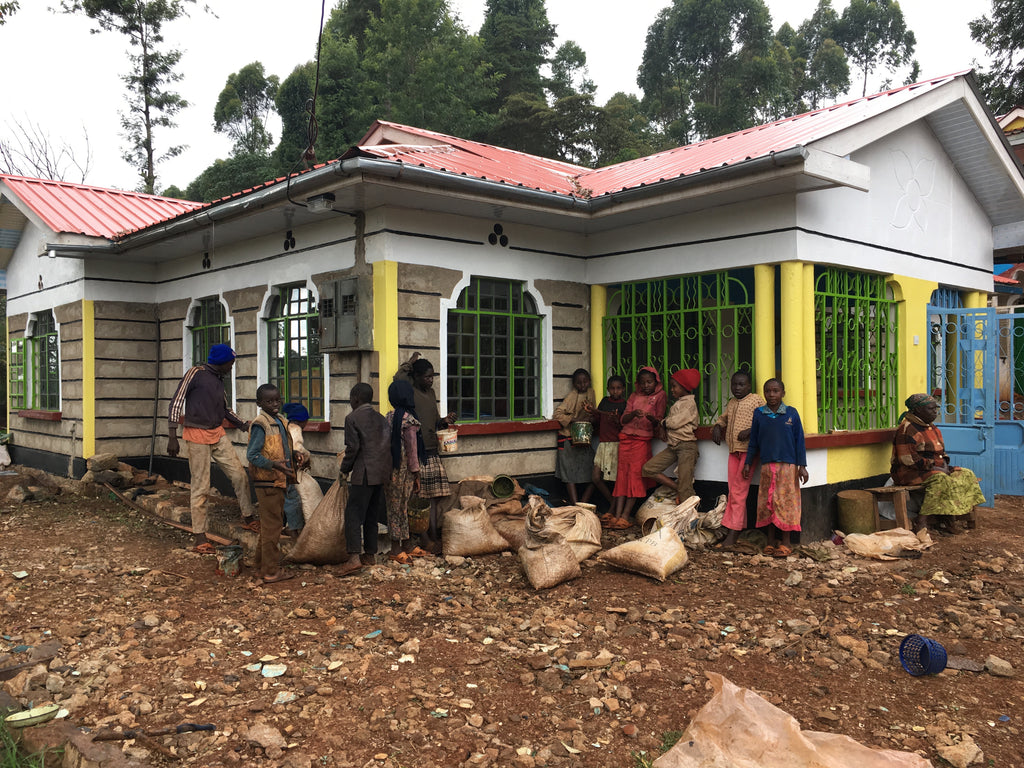Kenya Journals by Kris Schackmann - Five Elephant's co-founder and green coffee buyer.
With the previous blog post we've started a series of journal entries on Five Elephant's sourcing trips to Kenya last couple of years. To read Part 1 have a look here.
----
...and then came El Niño.
The 2014–16 El Niño phenomenon, according to the World Meteorological Organization, is one of the strongest since 1950. This affected Kenya in ways it had not seen in decades. The entire Eastern African region experienced extreme periods of rain exactly at the time when coffee was being dried and milled.
It was estimated that only 1% of all coffee was affected, but we tasted the aftermath in Kenyan coffees from roasters all over the world last year. The result for Five Elephant was that we shipped a full container of Kenyan coffees all the way to Hamburg, Germany, with around 60% faulty coffee on it.
As a medium sized roaster, we do what we can to protect ourselves from coffee being damaged during shipping, but this incident has been the single greatest learning experience of our understanding of working at origin.

Coffee Damaged From Wet Milling
A container of coffee is around 17,000kg of green coffee. So we basically paid cash for and shipped around 10,000kg of coffee that we could never sell, to Hamburg. It has taken us almost 2 years to recover from this and as a result did not go to Kenya last year, along with numerous other residual side effects.
We also were left with many unanswered questions about how the coffee, that we brought back with us as our offer sample, could taste wonderful while at the same time coffee that was shipped by container tasted like 2 year old wet cardboard. There was just no explanation given to us that could answer this.

Peter Home of Coffee Management Services
Estate Coffee in Kenya
We’ve asked ourselves how could something like this happen? After some seriously long emails over the course of 2016, we were presented with one of the coffees from an Estate who we had “committed” to purchase for some years. The coffee, while still with acceptable moisture levels, had hints of the flavor we faulted in the coffee from the year before.
Oh no!
The name Estate alludes to some fancy spread of land with a big house, manicured garden and lots of workers working for the Estate owner. That is simply not the reality. In most cases Estates are small farmers producing 20-50 bags of coffee total in a year and mostly by themselves or with a few hired staff for harvesting and wet milling.
We’ve seen estates with piles of trash around a small house and dirty children working hard while on school break. In most cases you see farm animals living directly in the area of production, sometimes with farm animals pens directly uphill from where coffee is dried. Needless to say, it is fairly easy to see an Estate who could possibly produce good coffee before you even cup it and clear when you see a producer who you would never work with.

Unfortunately, A Farm We Do Not Have The Resources To Help.
In the case of the pride of our 2016 Kenya purchases, The Juliet Estate was the most spectacular coffee we have ever tasted from Kenya and our visit to Julius and Edith Mariuki further reinforced our idea that this was a producer we could commit to for some time. On the spot we shook hands and decided to work with each other for the next years.

Our Partners Julius and Edith Mariuki of Juliet Estate
So from the perspective of a cupping table in Berlin in April 2017, we were terrified with what we tasted when we cupped Juliet earlier this year. We were so removed from the process and the relationship that we acted irresponsibly. We didn’t see it then and in fact, were mostly thinking about self-preservation and our reputation for consistently sourcing what we think to be some of the best coffees Kenya has to offer.
After cupping the coffee from 2 different samples that were mailed from Kenya, we turned down the coffee this year and decided that if there was any sense for us to even visit Kenya, that we owed it to our partners to heed a certain responsibility.
With a determination to understand and commit further to every process of the coffee we want to partner with, we headed down to Kenya the first week of December.
What we would learn would start to create a value that we so greatly had been overlooking.
To be continued...


3 comments
How unfortunate for you and your company. We have also experienced this seemingly inexplicable phenomenon of a lot acquiring a past crop taste in a short amount of time. In every case we have found that this was caused by spending too much time (as little as 10 days in a few cases) in a hot and humid environment such as is commonly found in many coffee shipping ports and certainly Mombasa is a case in point.
We had one case in which a ship was stuck in Kingston Jamaica for two weeks and the same thing happened.
We address this potential issue by writing the contract subject to approval of a landed (port) sample.
Thanks, I ave recently been looking for info about this subject for a while and yours is the greatest I ave found out so far.
Thank you for sharing this story, unfortunately its a painful one but it really shows the risks along the chain & how roasters must stand back now & then & think deeply how to manage & mitigate risk – bests wishes
Leave a comment